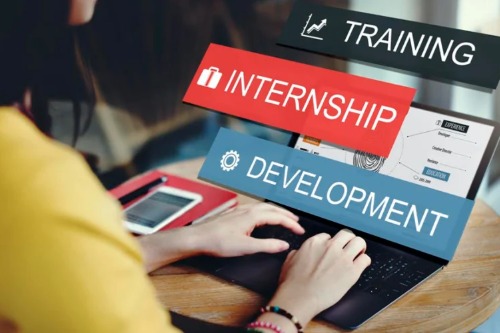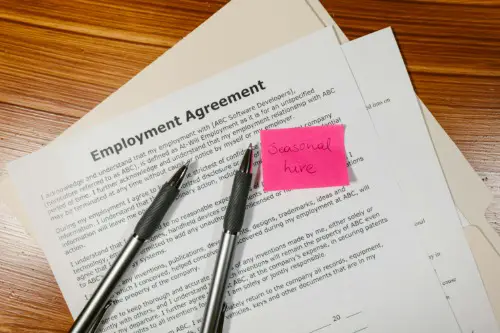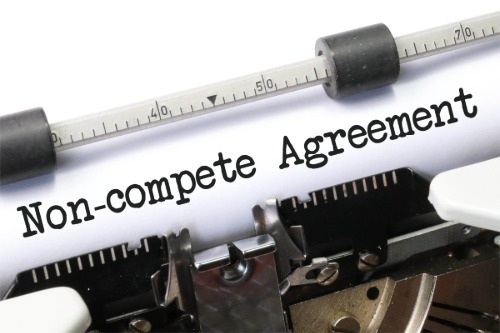1. Excessive Overtime

In the United States, working long hours is often seen as a badge of honor. Many Americans routinely put in 50-60 hours a week, especially in demanding industries like finance, tech, and law. Overtime is sometimes expected and can even be encouraged to meet deadlines or prove dedication to a job, according to Alison Moodie form The Guardian. However, in Europe, excessive overtime is often illegal, and employees are typically entitled to more regulated hours, especially under the EU’s working time directive, which caps working hours at 48 hours per week.
In countries like France and Germany, there’s a cultural and legal emphasis on maintaining work-life balance. Employers are restricted from requiring employees to regularly work more than a set amount of overtime, and workers often receive additional pay for overtime hours. This is a significant difference from the U.S., where the work culture tends to be more focused on output and long hours. The European approach aims to protect workers’ health and well-being, which is a concept that’s not as heavily enforced in American workplaces.
2. Lack of Paid Vacation Time

Americans are notorious for not taking all of their paid vacation days, and in some cases, they don’t get many to begin with, according to Emma Pitts from Deseret News. While many European countries mandate a minimum of four weeks of paid vacation annually, Americans often get far less—sometimes as little as two weeks. It’s not uncommon for workers in the U.S. to feel pressured to work during their vacations or to leave days unused. In contrast, European workers generally have the legal right to take their full vacation, and there’s often more encouragement from employers to truly disconnect.
This discrepancy highlights a key difference in attitudes toward work and rest. In Europe, long vacations are seen as vital for mental and physical health, and there’s less stigma attached to taking time off. In the U.S., however, there’s a persistent culture of hustle and fear of falling behind, which can lead employees to skip vacations altogether. The European model values rest and rejuvenation, acknowledging that downtime is crucial for productivity in the long run.
3. No Guaranteed Parental Leave

In the U.S., there is no federal law guaranteeing paid parental leave, which means that many American workers have to either take unpaid time off or rely on short-term disability if they want to stay home with a newborn, according to Krystin Arneson from the BBC. Meanwhile, European countries have some of the most generous parental leave policies in the world. In Sweden, for example, parents can take up to 480 days of paid parental leave, with both parents encouraged to split the time. Other European nations, such as Germany and France, also provide significant paid leave.
This difference highlights a stark contrast in how each region values family and work-life balance. In the U.S., there’s less emphasis on supporting parents through paid leave, and many companies don’t offer this benefit unless required by state law. On the other hand, Europe’s laws emphasize the importance of parental bonding and caregiving. The U.S. system often leaves new parents with difficult decisions about returning to work quickly or sacrificing income for family time, while European workers are more likely to have financial support during their leave.
4. The “At-Will” Employment Model

In the U.S., many employees are hired under the “at-will” employment model, which means that either the employer or the employee can end the employment relationship at any time without notice or cause, according to Gili Malinsky from CNBC. This often results in job insecurity for workers, as they can be dismissed abruptly. In Europe, labor laws generally require more protections for employees, including mandatory notice periods for termination and severance pay in many cases. European workers typically have much more stability in their jobs because employers must justify a dismissal or offer compensation.
This stark difference in employment laws means that, in Europe, employees are afforded more security and time to find new work if they are let go. In countries like Germany and France, workers have stronger unions and labor protections, which help to ensure that they are not unfairly dismissed. Meanwhile, in the U.S., job security tends to be more fragile, and the at-will model can sometimes leave employees feeling vulnerable. The European model aims to create more stability and fairness in the workplace for employees.
5. Limited Worker Protections for Freelancers

Freelancers and gig economy workers are increasingly common in the U.S., but their rights are often not as protected as those of traditional employees. Many gig workers in the U.S. have no access to benefits like health insurance, paid sick leave, or workers’ compensation, and they have little recourse when it comes to disputes with employers or clients. In Europe, however, freelancers are more likely to be granted certain protections, such as minimum wage laws and access to social security benefits. Countries like Spain and France are working to improve the situation for gig workers, ensuring that they have some of the same rights as salaried employees.
This gap in protection is particularly important as the gig economy continues to grow. Without proper safeguards, freelancers in the U.S. are often left without a safety net when facing health issues, job insecurity, or unfair treatment. European nations, on the other hand, recognize that gig workers deserve protections against exploitation and hardship. These labor laws aim to prevent the gig economy from becoming a system of precarious and unregulated work.
6. Lack of Mandatory Sick Leave

In the U.S., there’s no nationwide law requiring employers to provide paid sick leave, meaning that workers may have to go without pay if they’re ill or risk losing their job for taking time off, according to Michael Sainato from The Guardian. This can lead to a culture of going to work even when sick, which is not only unhealthy but can contribute to the spread of illness. In contrast, nearly all European countries mandate paid sick leave. In the UK, for instance, workers are entitled to Statutory Sick Pay (SSP) for up to 28 weeks if they are unable to work due to illness.
This lack of sick leave in the U.S. can lead to a sense of pressure to work through illness, even at the cost of personal health. In Europe, workers are encouraged to take time off when sick without worrying about losing income or facing job consequences. This system also helps to maintain overall public health, as people are less likely to spread contagious illnesses in the workplace. European policies prioritize health, recognizing that employees are more productive when they are physically well.
7. Work During Lunch Breaks

In many U.S. workplaces, lunch breaks can be seen as opportunities to catch up on emails or have working lunches, meaning that employees rarely get a true break during the day. Many American workers don’t even take a full hour for lunch, using the time to run errands or continue working. In contrast, European countries place a much higher value on taking a proper lunch break. In Italy and Spain, for example, long lunch breaks are a part of the culture, and businesses often close for a few hours to allow employees to rest.
This difference in attitude toward breaks reflects broader cultural differences about work and personal time. In Europe, lunch breaks are seen as essential for both mental and physical well-being, with employees encouraged to disconnect and relax during this time. The American tendency to work through lunch can lead to burnout, while European practices prioritize healthy boundaries. In many European countries, it’s understood that taking a break during the day ultimately makes workers more productive and focused in the long run.
8. Limited or No Paid Sick Leave for Mental Health

In the U.S., mental health days are not typically recognized as a legitimate reason for taking sick leave, and workers may feel pressured to come to work even when they are struggling emotionally. Mental health is often treated as secondary to physical health, and employees can face stigma for taking time off for mental health reasons. In many European countries, however, mental health is taken just as seriously as physical health, and workers are entitled to sick leave for mental health reasons. For instance, in Germany, mental health is covered under the same policies as physical health for sick leave.
The difference in how mental health is treated shows a clear divide in workplace culture between the U.S. and Europe. In the U.S., there’s a growing recognition of the importance of mental health, but it still lags behind Europe in terms of legal protections. European workers are more likely to feel comfortable taking time off for mental health reasons without fear of stigma. This prioritization of mental well-being in Europe is key to maintaining a healthy and productive workforce.
9. No Legal Protections for Unpaid Internships

In the U.S., unpaid internships are common, especially in competitive fields like entertainment, fashion, and politics. Many students or young professionals are expected to work for free in order to gain experience and build their resumes. In contrast, most European countries have laws that regulate internships, ensuring that they are paid, at least at a minimum wage level. Countries like France, Germany, and the UK have strict guidelines that require interns to be compensated for their work.
Unpaid internships can be particularly exploitative, as they often favor those who can afford to work without pay, creating barriers for low-income individuals to enter certain fields. In Europe, internships are generally seen as a learning opportunity, not just free labor. Legal requirements for payment help ensure that internships remain fair and accessible to everyone. This approach fosters equality and reduces the risk of exploitation, making sure that young professionals are compensated for their time and skills.
10. Lack of Legal Protections for Short-Term Contracts

In the U.S., short-term contracts or temporary work are often offered with limited benefits, and there’s less protection for workers in these roles. Temporary workers in the U.S. might not have the same job security or rights as full-time employees. On the other hand, many European countries, such as France and Italy, have laws that regulate short-term contracts to ensure that workers are not exploited. These laws usually require employers to offer more stability and benefits to temporary workers.
Short-term contracts can leave workers in a precarious position if they are constantly cycling between temporary jobs with little stability. In Europe, laws help to prevent employers from abusing the system by hiring workers on temporary contracts without offering job security or benefits. This legal protection helps to create a fairer work environment, where employees are treated with more respect and dignity, regardless of the length of their contract. European workers can generally expect a higher level of security, even in non-permanent roles.
11. No Legal Restrictions on Employer Access to Personal Emails

In the U.S., it’s often legal for employers to access employees’ personal emails, especially if they are using work accounts or devices. Some companies even monitor employees’ personal communication during work hours, without any legal restrictions. In many European countries, however, there are strict data protection laws that make it illegal for employers to access personal emails or monitor private communications without consent. The General Data Protection Regulation (GDPR) in the EU gives workers strong rights over their personal data.
This difference in privacy protections reflects a broader commitment to individual rights and freedoms in Europe. In the U.S., the workplace is often seen as an extension of the employer’s control, while in Europe, workers are granted more autonomy over their personal information. The legal protections in Europe help ensure that employees’ personal lives remain private, even within the work environment. These regulations not only protect privacy but also foster a sense of trust between employees and employers.
12. No Right to Disconnect

In many U.S. workplaces, employees are expected to be available at all hours, answering emails or taking calls outside of regular work hours. This expectation can lead to burnout and a lack of work-life balance. In contrast, several European countries, including France, have introduced laws that give workers the “right to disconnect.” These laws prohibit employers from requiring employees to respond to work-related communication outside of office hours, helping to protect personal time.
The lack of a right to disconnect in the U.S. can create an unhealthy culture where employees feel constantly tethered to their jobs. In Europe, workers are encouraged to truly disconnect from work during their personal time, which helps reduce stress and improve overall well-being. The right to disconnect recognizes the importance of personal time and ensures that employees have clear boundaries between work and home life. This practice promotes healthier work environments and better mental health for workers.
13. No Minimum Wage Law in Some States

In the U.S., the federal minimum wage is $7.25 per hour, but many states and cities set their own minimum wage, and some have wages well below the federal standard. In contrast, nearly all European countries have established a nationwide minimum wage that is higher than the U.S. federal rate. Countries like France, Germany, and the UK all have minimum wage laws that ensure workers earn a livable income. These laws help reduce income inequality and provide a safety net for workers who are less skilled or less experienced.
The U.S. system often leads to wage disparity across states, with some workers earning significantly less than others depending on where they live. In Europe, the higher and more consistent minimum wages provide more stability for workers, helping them meet basic needs. The European model seeks to ensure that all workers, regardless of their industry or skill level, can earn a fair wage. This approach creates a more equitable economic landscape where workers are better protected against poverty.
14. Limited Regulation of Non-Compete Agreements

In the U.S., non-compete agreements are widely used, particularly in high-tech industries, and can prevent employees from working for a competitor after leaving a job. These agreements are often signed without much thought and can limit career opportunities for employees. In contrast, European countries have much stricter regulations around non-compete clauses. For instance, non-compete agreements in many European countries are only valid if they are reasonable in scope and duration and offer compensation for the restricted period.
This difference highlights the balance between employer interests and employee rights in the two regions. In the U.S., non-compete clauses can be overly restrictive, making it difficult for workers to move between companies or industries. European laws aim to protect workers’ freedom to seek employment without facing unnecessary limitations. By regulating non-compete agreements, Europe ensures that employees can continue to grow and pursue new opportunities without fear of legal constraints.


